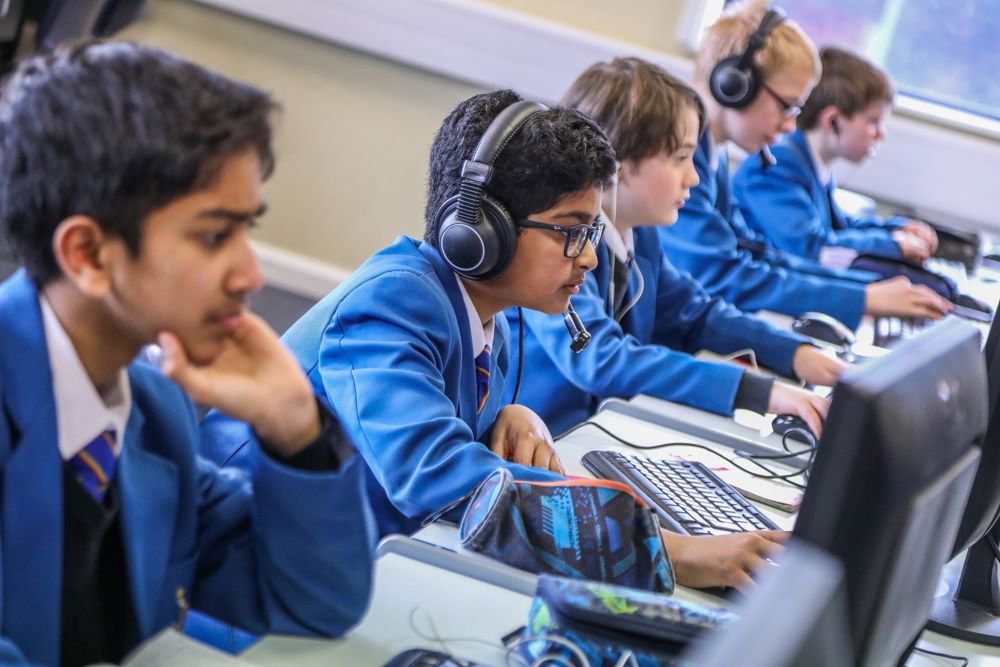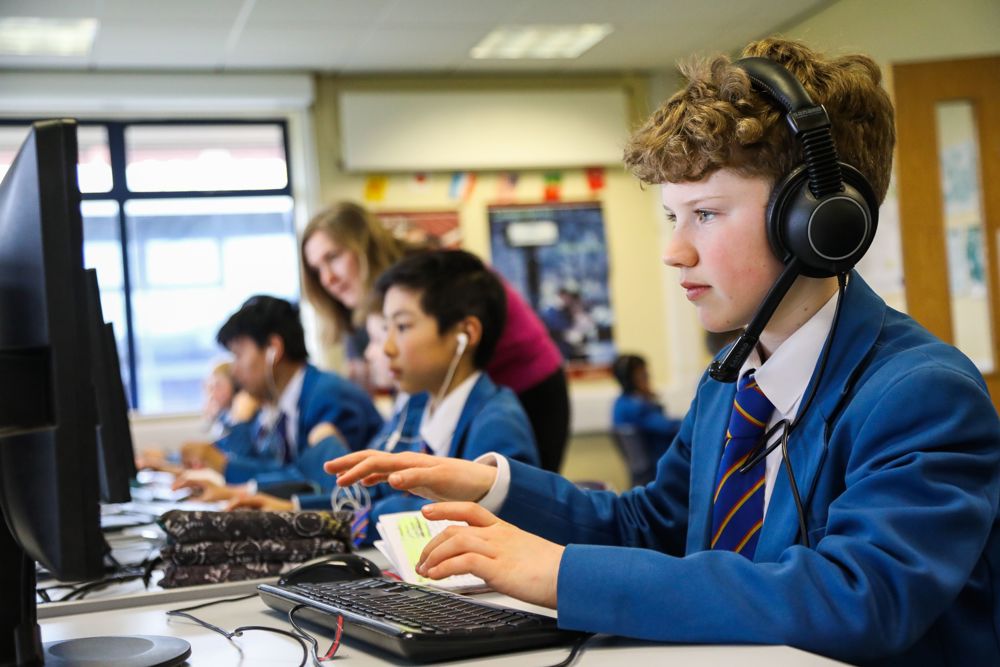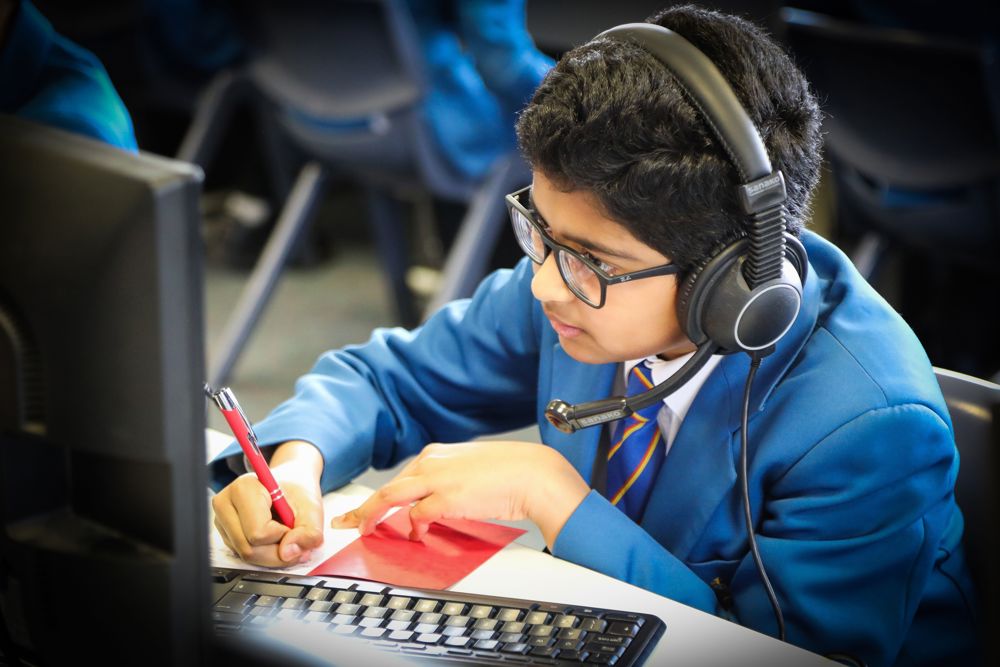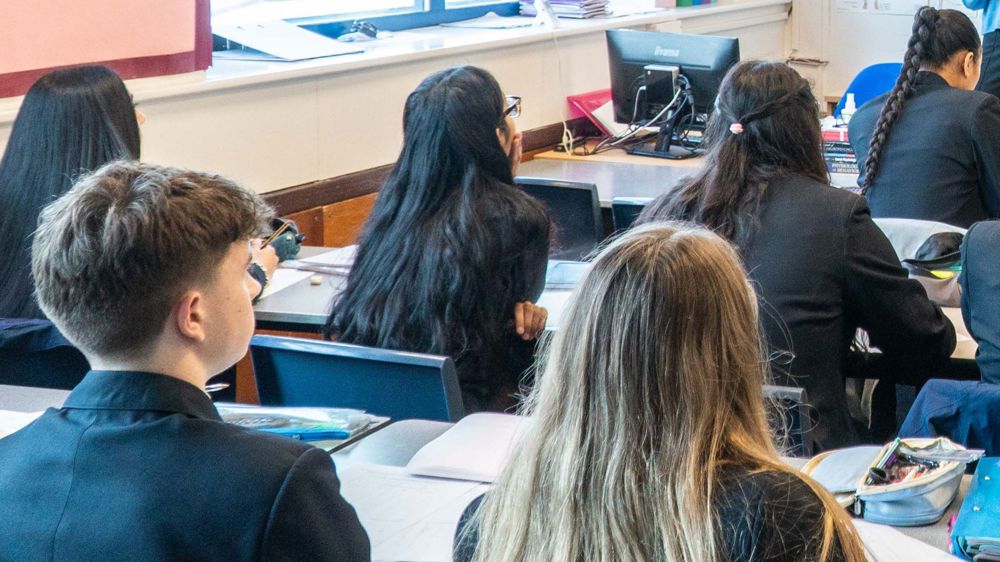
German
Department teachers are dedicated to making learning German a stimulating and intellectually challenging cultural and linguistic experience for all students. The subject is introduced in Year 7, and while it is the first experience of learning the language for many pupils, they progress quickly and often cite it as one of their favourite subjects in Key Stage 3.
In Key Stage 3 pupils become familiar with the sounds, written form and grammar of German, and increase their cultural awareness of German-speaking countries while forming a sound basis for further study in Key Stage 4 and beyond. GCSE German offers pupils the opportunity to develop and use their language knowledge and skills with confidence and competence, enabling them to gain a deeper understanding of spoken and written German. At A Level, students build on their linguistic knowledge, developing language skills to a standard that enables them to easily converse abroad, follow the news and write well structured, advanced essays. Regular language and exchange trips enrich students' experience of learning German, allowing them to immerse themselves in another country's culture and develop strong speaking skills.

Key Stage 3
Key Stage 3 students are taught languages for a total of six periods a fortnight, including French, German and Spanish, with a 30-minute homework task every week. Teachers also encourage students to learn vocabulary for an extra 10 minutes every day to aid their progress. All Key Stage 3 pupils follow the Pearson STIMMT course, which is suitable for all abilities and prepares pupils well study at GCSE level. End of unit assessments take place in lesson time throughout Key Stage 3, testing listening, speaking, reading and writing competency, plus there is a formal examination at the end of every year.
Year 7
About myself. My family and pets. Free-time activities. School. In town.
Year 8
Holidays. Media. Health and fitness. A school trip. Going on a date.
Year 9
Role models. Music. Ambitions. Childhood. Citizenship.

Key Stage 4
Pupils study the AQA GCSE specification for five periods fortnight, with a one-hour homework assignment every week. Students are also expected to spend at least 10 minutes a day learning new vocabulary. The course is suitable for pupils of a range of ability and interests and throughout Year 10 and 11 there are end of unit assessments testing listening, speaking, reading and writing competency. There is a formal mock examination each year, assessing listening, speaking, reading and writing skills. Four final assessments take place at the end of Year 11; one each in listening, speaking, reading and writing. Each question paper weights 25% of GCSE German. Pupils are entered either for Foundation (Grades 1-5) or Higher Tier (Grades 4-9).
Year 10
Foundation Level: Me, family and friends. Technology in everyday life. Free-time activities. Customs and festivals. Home town, neighbourhood and region. Social issues. Global issues. Travel and tourism. Life at school/college. Jobs, career choices and ambitions.
Year 11
Higher Level: Me, family and friends. Technology in everyday life. Free-time activities. Customs and festivals. Home town, neighbourhood and region. Social issues Global issues. Travel and tourism. Life at school/college. Jobs, career choices and ambitions.
Useful Links

Key Stage 5
Students follow the WJEC Eduqas specification over 10 periods a fortnight, plus a free period to be spent with the Department's German Language Assistant. Two hours of homework is set every week, alongside 10 minutes a day learning new vocabulary.
Entry requirement
Grade 7 GCSE German.
Year 12
Family structures, traditional and modern values, friendships/relationships and citizenship. Youth trends, issues and personal identity. Educational and employment opportunities. Regional culture and heritage in Germany/German speaking countries and communities. Literature, art, film and music in the German-speaking world. Film 'Die fetten Jahre sind vorbei' (The Educators).
Year 13
Migration and integration. Cultural identity and marginalisation. Cultural enrichment and celebrating difference. Discrimination and diversity. The making of modern Germany: 1989 onwards. Literary text 'Ich fühl mich so fifty fifty'. Independent research project (as part of the speaking examination).
Useful Links
Enrichment
German offers the opportunity for students in every Key Stage to visit the country and experience German culture, society and language. Year 8 and 9 pupils travel to the Rhineland area of Germany for five days, visiting Cologne, taking a boat trip on the Rhine, exploring the medieval town of Rüdesheim on the banks of the river, and taking a day trip to Phantasialand, one of the biggest German theme parks. Year 10 pupils can take part in the Göttingen exchange with students from the Otto-Hahn Gymnasium. Our Year 12 pupils have the opportunity to take part in the Halsbury work experience programme over the February half-term holidays; the programme includes five days at their chosen work placement, evening entertainment and travel.
Head of German
Birgit Testoni-Ranken [email protected]